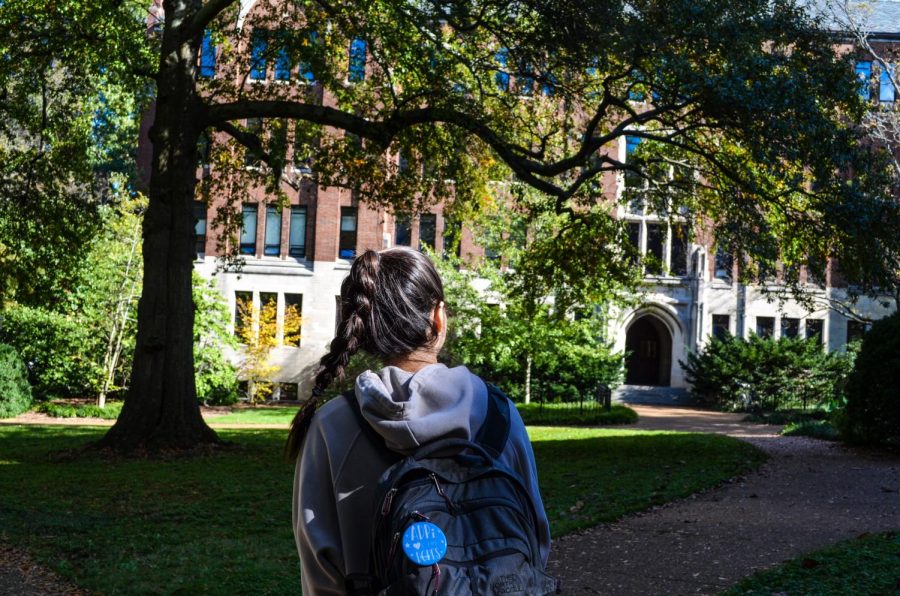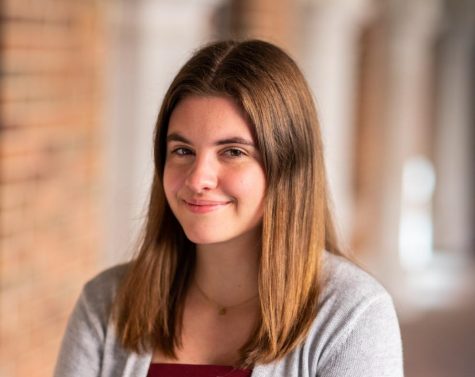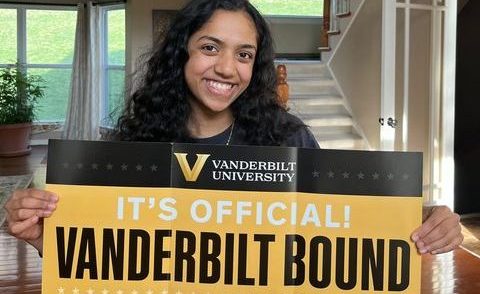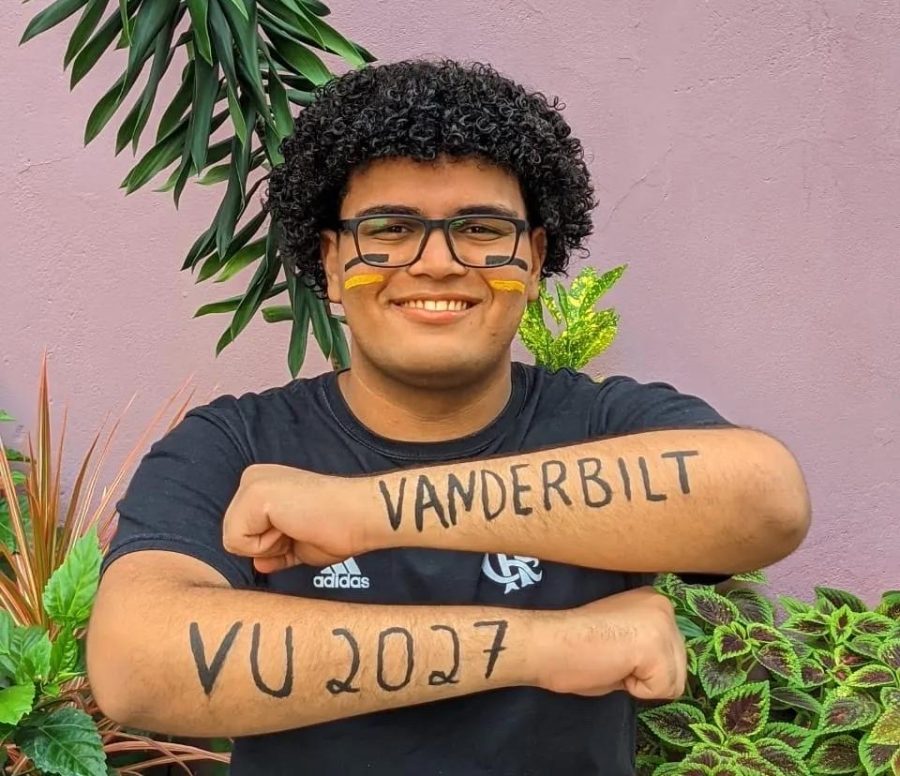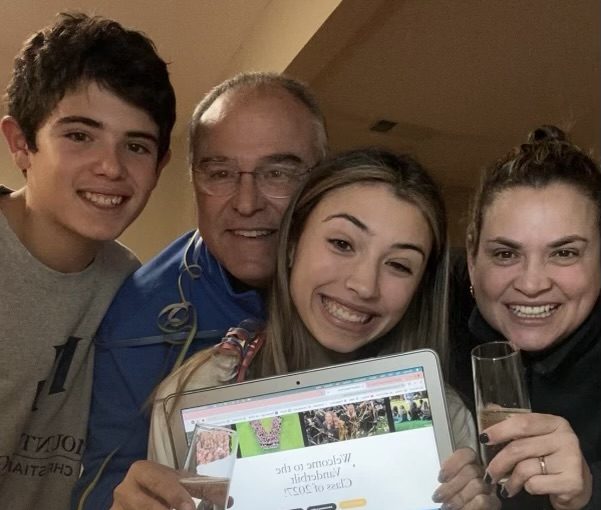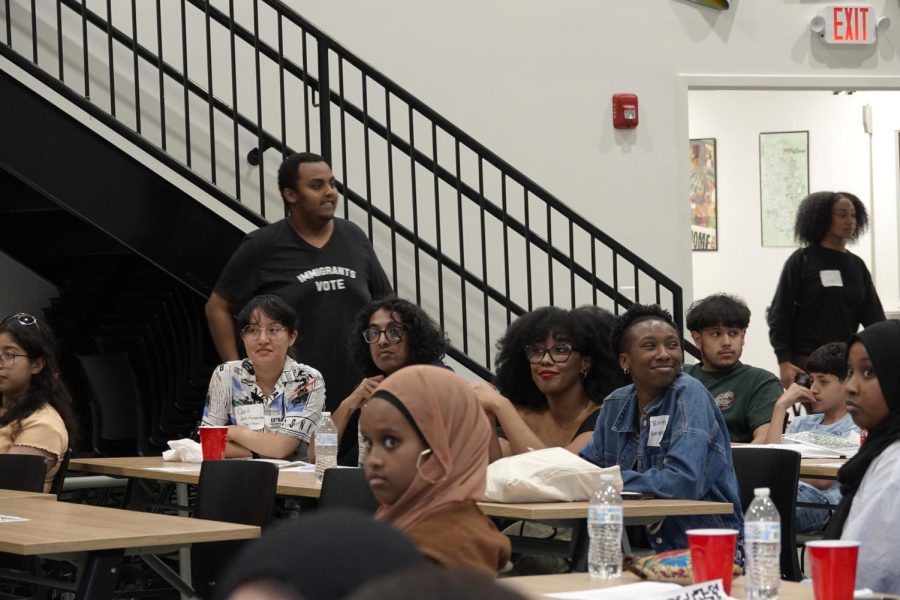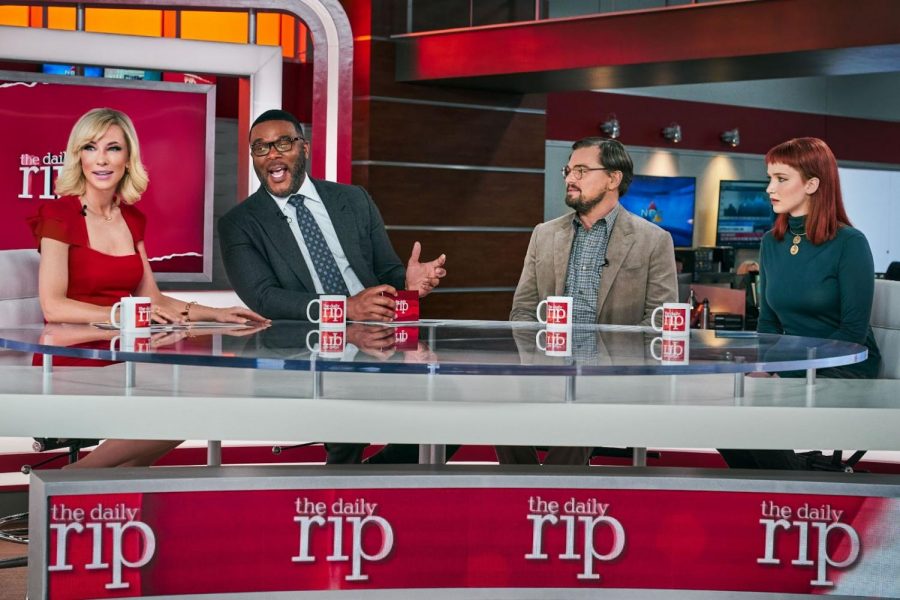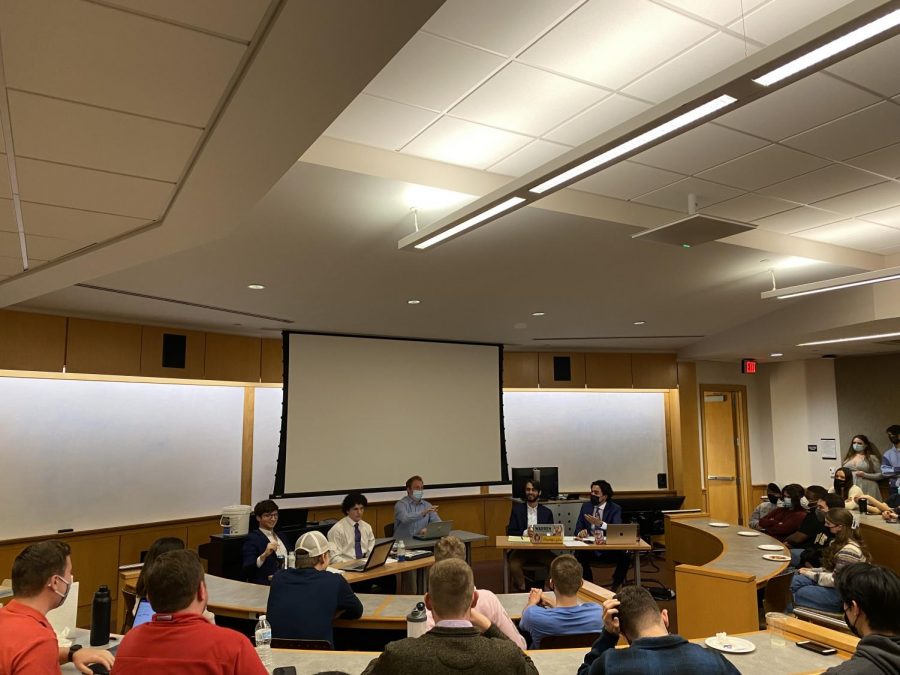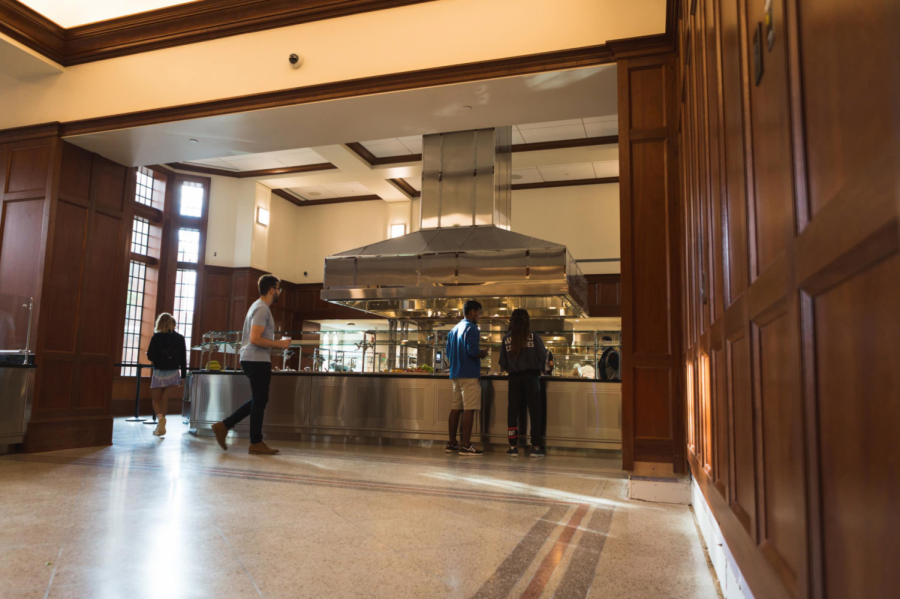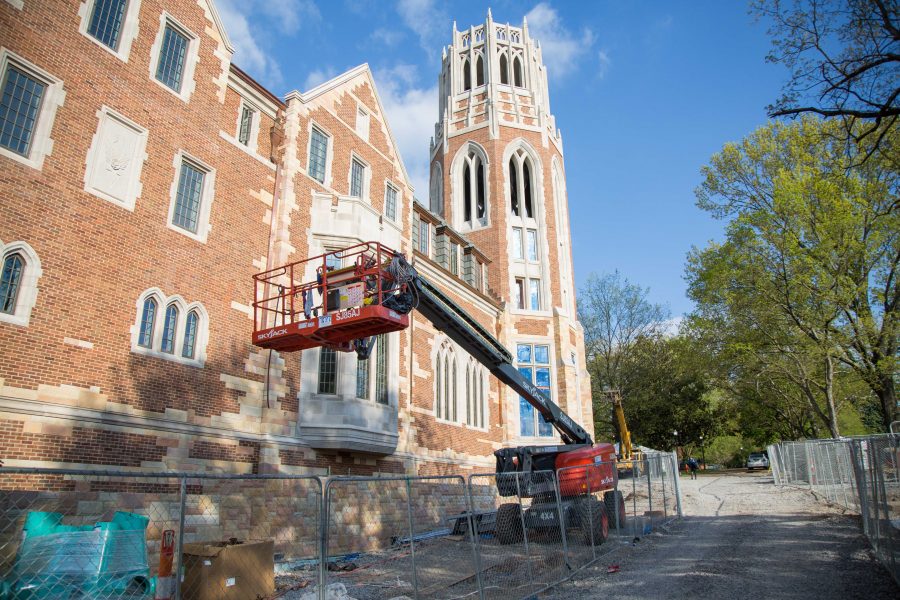Vanderbilt announced that eight incoming first-years were named Ingram Scholars on June 29. Each student will receive a four-year, full-tuition scholarship and a $5,000 stipend for their required summer service project.
Founded in 1993 by E. Bronson Ingram, the Ingram Scholars Program selects awardees based on their character, leadership and commitment to community service. The program has 285 alumni and 33 current scholars including those in the Class of 2026, per the Ingram Scholarship Program Directories.
Class of 2026 Ingram Scholars
Tyler Brack of Lake Worth, Florida
Shrey Chande of Harrisburg, North Carolina
Jamie Danis of Greensboro, North Carolina
Tanya Das of Sioux Falls, South Dakota
Patrick Dobranowski of Castle Rock, Colorado
Elanil Erdugrul of Istanbul, Turkey
Aaron Li of Portland, Oregon
Isabela Schmidt of Avaré, Brazil
Reflecting on their beginnings
Raised in the small Brazilian town of Avaré where extracurriculars are practically unheard of, Schmidt decided to pave her own path. During the COVID-19 pandemic, she began paying attention to the Brazilian news, ranging from topics such as child abuse to war. What began as mere discussions about these issues with her friends soon evolved into a 150-member human rights advocacy project called Garotas Pelo Mundo, or Girls for the World.
“That was my first passion: understanding the problems our community faces and discussing them without the taboo of Brazil’s conservative attitudes,” Schmidt said. “At some point, we realized that only discussing [these issues] was not enough. We started creating social projects to solve these problems and really make an impact.”
Brack’s high school experience differed greatly from Schmidt’s; along with his high school diploma, he is nearly eligible for a bachelor’s degree in civil engineering from Florida Atlantic University (FAU). He attended FAU High School, a dual-enrollment program in which students attend high school in ninth grade and FAU for the rest of high school. Per the school’s website, a typical student will have accumulated three years worth of college credits by the time they graduate. He hopes to pursue the intersection of civil engineering and service at Vanderbilt.
“There are so many issues in the world right now, like homelessness, poverty and climate change, and I feel like civil engineering is a good foundation to explore all those further,” Brack said. “Most people at [FAU] just stay there, get their bachelor’s degree and do some research, but I found the Ingram Program and realized there was more to how I could bridge service with civil engineering like I was initially interested in.”
Whereas Brack is interested in how engineering can be applied to social and environmental issues, Danis hopes to focus on engineering in the context of medicine by majoring in biomedical engineering. Medicine has been a part of Danis’ life for as long as he can remember, both through his father’s career as a physician and his grandfather’s health struggles. Simultaneously, his enthusiasm for hands-on work cultivated his hobby of woodworking.
“I hope to follow in [my father’s] footsteps but also apply my interest in working with my hands to my main goal, which is trying to help people,” Danis said.
Like Danis, Erdugrul has been motivated by her grandfather’s health struggles, specifically with Alzheimer’s disease, to pursue a degree in neuroscience.
“At the time, I didn’t know what my grandfather’s diagnosis meant for me, but he pretty much lost all my memories with him. That’s why I’m really into memory diseases like Alzheimer’s and Parkinson’s,” Erdugrul said. “Also, the brain itself is so fascinating to me. The mystery behind it is what gets me going.”
Portland native Li was a part of his middle school’s gifted and talented program. Per Li, a great deal of pressure and stress came along with the environment of the program. To provide a safe space for Asian American and Pacific Islander (AAPI) individuals to share their experiences within such environments, Li co-founded Project Lotus. It is an organization that destigmatizes and provides resources to advocate AAPI mental health. In February 2022, Prudential Financial recognized Li as a Prudential Emerging Visionary for his advocacy efforts.
“We found our main goal to be looking at some of these internal and external pressures and expectations placed on AAPI communities, like the model minority myth,” Li said. “There are a ton of mental health organizations out there, but there aren’t that many that focus on just AAPI mental health—we wanted to really tackle that problem and raise awareness.”
Taking initiative
A hallmark of the Ingram Scholars Program is encouraging students to develop projects that tackle “significant domestic and international needs,” per the program’s website. This year’s Ingram Scholars were no exception to this mission; in high school, all of them identified local or global problems and used their passions and resources to devise solutions.
For instance, Chande recognized the lack of youth mentorship in his hometown of Harrisburg, North Carolina. In turn, he helped establish Framework4Future, a 501(c)(3) nonprofit organization which teaches kids about civic knowledge and youth leadership by allowing them to participate in and organize different community events. The organization has amassed more than 600 members over a five-year period.
“We saw that there was a really high need in the community for a nonprofit organization that taught kids how to navigate the aspects of life that school just wouldn’t teach you—namely, the aspects of life that allow you to make an impact on your community,” Chande said.
Also from North Carolina, Danis attended a Greensboro inner-city public school, which made him keenly aware of the city’s lack of resources, specifically in regards to food insecurity. He converted his passion for woodworking into a charitable business, ultimately raising over $8,000 over two years for A Simple Gesture, an organization that provides supplies to local food pantries and food banks.
Meanwhile, Das’ passions involve the ocean and environment. She began her work in environmental activism at a young age, spearheading the movement to transition all of her district’s public schools to solar energy. At age 13, she became a leader within former Vice President Al Gore’s organization, The Climate Reality Project.
“I actually got to meet him [Al Gore] when I was 13,” Das said. “He’s actually one of the reasons I applied to Vanderbilt because he’s an alumnus. We actually share the same birthday!”
Das also invented a remote-controlled underwater robot able to detect and remove plastic waste from the ocean as a part of her middle school’s underwater robotics program. Most recently, she founded Motion for the Ocean, an international 501(c)(3) nonprofit that attempts to empower youth to become environmental activists and community changemakers. Das raised $18,650 for an international pilot program in India, where she reached over 450 students from more than 40 rural villages. Since then, she has reached over 5,500 additional youth leaders across six states and 12 countries. For her work with Motion for the Ocean, Das was recognized as one of the winners of the International Young Eco-Hero Award by Action for Nature.
Dobranowski, on the other hand, sourced his inspiration from a bit closer to home, discovering his passion for computer science from his software engineer father. In fifth grade, he learned to write code; in high school, he identified where he could make a difference when he noticed engineers collecting data on paper rather than on computers due to software being too expensive for small businesses. To help these businesses transition to online platforms and increase efficiency, Dobranowski founded Dupper Analytics.
“We started building apps for these local businesses that wanted to automate their daily processes using software but haven’t been able to because they’re too shy or don’t have the funds,” Dobranowksi said. “That’s what I really enjoy about computer science: getting to create things and be proud of my own creation but also being able to help people.”
Dobranowski also hosted his own virtual cybersecurity competition with more than 2,300 participants across the globe. Sponsored by Google and other big tech companies, the free competition raised $15,000 in cash and nearly $50,000 in educational resources. The proceeds were donated to organizations that promote computer science engagement, such as Women in Cybersecurity.
Born and raised in Istanbul, Erdugrul similarly aimed to promote women in STEM, recognizing that girls in southern Turkey had very limited educational opportunities and low literacy rates. During the COVID-19 pandemic, she co-founded Great Horizons, a project in which she engaged with 50 to 70 of these students per week via Zoom to promote STEM education. In addition to games and Q&A sessions, Erdugrul sent science materials to the participants to provide them with a hands-on component that was then discussed in the online sessions.
“We wanted to give them a chance to experience science—not just science through education, but science in real life,” Erdugrul said. “It’s shown them that science is really fun and something they can use, not just a mathematical operation or labs.”
Also interested in tackling education disparities, Brack started a test prep nonprofit through his local Boys & Girls Club in Lake Worth, Florida, to provide disadvantaged students with free tutoring and college admissions guidance. He also participated in the National Science Foundation’s Innovation Corps, which provided him with training and guidance to scale up his non-profit.
Additionally, Brack received the Barb Schmidt Fellowship in 2021, giving him the opportunity to combine his passion for civil engineering with ocean conservation efforts. By the summer of 2023, Brack hopes to install his first artificial reef in Palm Beach, Florida.
Like Brack, Li sought out engineering as a means for environmental and social good. He recognized disparities in chronic obstructive pulmonary disease (COPD) prevalent in areas with limited access to clean air and cooking. In Myanmar, where open fire cooking is common, COPD has risen to the third leading cause of death as of 2019. Li began tackling this problem by building solar-powered ventilation systems out of recycled parts and donating these systems to villages in Myanmar through the Myanmar Hope Christian Mission. He also helped write instruction manuals to help villagers to build their own ventilation systems with materials sourced from nearby China.
“By having a more simplified solution, they’re able to build it themselves, which I think is a much more scalable model for growth,” Li said. “The experience taught me a lot about finding the right problems to solve. It’s important to look at problems that are unaddressed and where you can actually make an impact.”
While Li explored alternative models to broaden his impact, Schmidt sought out additional opportunities to focus her service efforts on specific populations. Her summer internship at Gotinhas do Bem, or Little Drops of Good, allowed her to help kids from underprivileged backgrounds develop social and emotional skills. From her position as intern, she rapidly rose through the ranks, eventually taking over as CEO.
“We always joke that I had the world’s fastest career growth,” Schmidt said. “I realized what I really like is the inside part of the job—strategic planning, benchmarking, the whole business lingo. At the same time, I’m always asking ‘how can we make this meaningful?’ My passion is working with kids and teenagers and figuring out how to make this creativity logical and feasible.”
Choosing Vanderbilt
All Ingram Scholars agreed that the program application and interview process felt very personalized and engaging. Li called Vanderbilt’s approach to the selection process “refreshing.”
“They already knew everything about you in terms of accomplishments, so when you went to talk to them, it wasn’t a conversation about rehashing your resume,” Li said. “The main focus was your goals and your values. They asked a lot of questions that made you reflect, and I really appreciated that.”
He added that Vanderbilt’s location in Nashville was appealing to him, particularly due to the music scene and—of course—the fried chicken.
Similarly, Chande’s favorite aspect of the selection process was how it encouraged him and his peers to be completely honest.
“The Ingram process wanted to see us holistically. I honestly appreciate people who are able to talk about their weaknesses as much as they are about their strengths because it shows that they want to improve,” Chande said. “That’s definitely something that held true to me. I’m coming to college in the first place to improve, not just to embellish my resume.”
Chande, Danis and Erdugrul also shared that they were pleasantly surprised by the kindness of current students with whom they have interacted.
“As soon as I came to Vandy, I realized this is a school that’s built on the principle of the collective rather than the principle of the individual,” Chande said.
Das and Dobranowski both praised the structure of the Ingram Scholars Program in enabling students to transform their passions into forces of social good.
“Ingram really resonates with me because I want to learn how to lead an impactful life,” Das said. “They don’t put limits on you. Everyone is pushing you to go for what you want to do, and I really like that support.”
On a different note, Schmidt acknowledged that the authenticity of the student body was a key selling point in addition to Vanderbilt’s unique human and organizational development major.
“One thing that really made me choose Vanderbilt was how I was received once I got in,” Schmidt said. “I got in through MOSAIC, and the multicultural group was really honest with us. That’s the thing I liked the most—I haven’t met a single Vanderbilt student that sugarcoated the university. They said the city is amazing and the college is amazing, but also that it’s not like I’m not going to have any problems. But, everyone followed it up by saying that I can always ask for help.”
Looking forward
The new cohort of Ingram Scholars already have plans for getting involved on campus, and many hope to build upon their past experiences to create even greater impacts in their careers.
Brack hopes to volunteer with Nashville’s Civic Design Center to fulfill his Ingram service requirements. In the long-term, he aims to bring more sustainable infrastructure to different cities around the world to help combat issues like homelessness and climate change.
Chande’s plan is to go into venture capital; he believes his skill set lies in not always knowing the solutions to problems but knowing who to go to for those solutions.
“At the end of the day, [venture capital] will allow me to fund innovation that I think would be able to best benefit as many people as possible,” Chande said. “That’s all innovation boils down to: increasing quality of life for any number of people in any industry or field.”
Danis wants to continue tackling food insecurity and ultimately use whichever organization he is a part of to amplify his impact.
Dobranowski hopes to get involved in Change++ and research on campus. His long-term goal is not necessarily to develop new technologies but to make currently existing technology more accessible.
“I want to take all of this super cool technology that is being made for the top 1% and scale it down or apply it in new ways that can help people on the lower end of society—in developing countries or even just our own communities,” Dobranowksi said.
Das plans to continue her environmental activism and volunteer at local schools in Nashville to increase interest in STEM. Career-wise, her dream is to pursue environmental policy law and perhaps run for president.
Erdugrul has her sights set on entrepreneurship in the areas of neuroscience and law. While interested in justice and criminal reform, she could also see herself performing research on Alzheimer’s disease to search for treatments and improve patients’ quality of life.
Li hopes to establish a Project Lotus chapter on Vanderbilt’s campus and join the Asian American Student Association. He views college as an opportunity to build his technical skills, after which he might pursue agriculture technology or another area of sustainability.
Schmidt is most excited about Vanderbilt’s campus traditions. She also wants to get involved with Next Steps and Project WISE at the Data Science Institute. After graduation, she intends to enter the field of emergency pedagogy, focusing on how she can use education to help kids overcome traumatic experiences.
“Let’s consider mass shootings or climate disasters or war or shantytowns in Brazil,” Schmidt said. “In emergency pedagogy, education functions as this playful tool to help them [children] overcome adversities. It’s currently not as known or as funded as it could be to really be something that helps the kids.”











